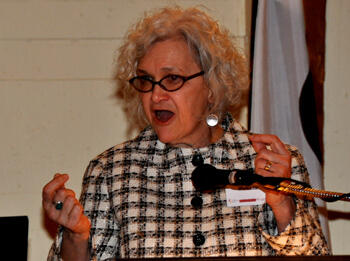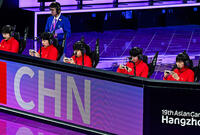This video is also available on the USCI YouTube Channel.
Click on the play button above to view Barbara Walkosz’s presentation on the Beijing Olympics.
The 2008 Olympic Games provided an extraordinary opportunity for China to display its culture, ideology, and values to a global audience. The media coverage of the Olympics is the primary means by which these cultural displays were disseminated. As a result, the media had the potential to affect perceptions of China by the larger global community including whether China achieved its objectives of impressing the world and positioning itself as a legitimate member of the global community. The media frames used to represent the Olympics will be discussed in the context of four ideological spaces: definition, equivocation, accumulation, and anticipation. Each of these spaces allows the media to set up a tension between two options concerning a major exigence, something that the media identify as “waiting to be done, a thing which is other than it should be.” Prof. Walkosz explicates these spaces and discusses how each reassures media consumers.




